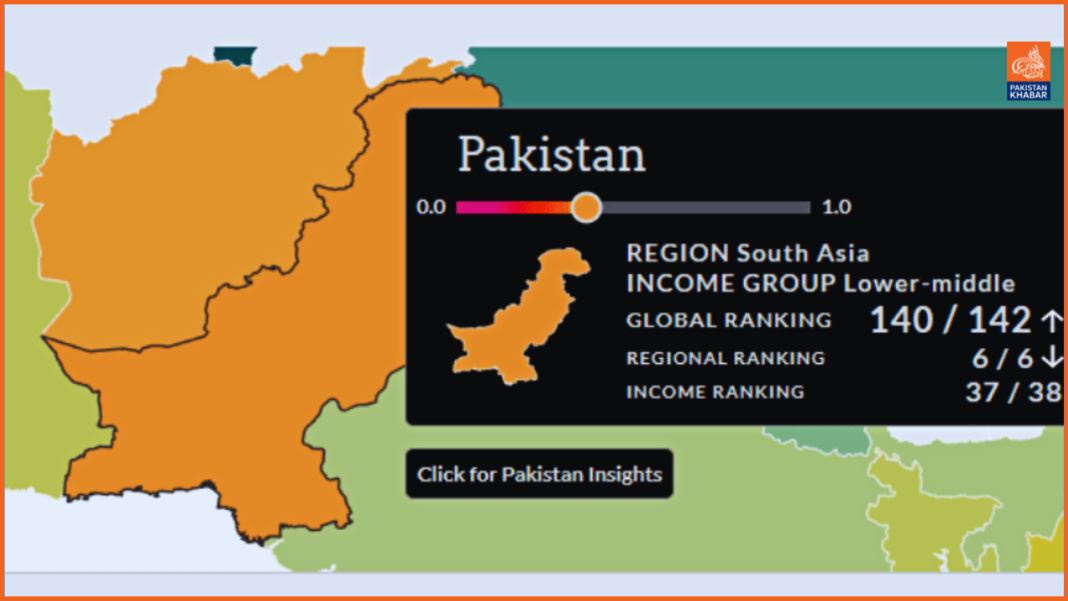Pakistan has been ranked as the third-worst country out of 142 for law and order, according to a recent report.
The World Justice Project (WJP) Rule of Law Index is an annual assessment that evaluates nations based on eight criteria: Constraints on Government Powers, Absence of Corruption, Open Government, Basic Rights, Public Order and Safety, Regulatory Compliance, Civil Law, and Criminal Law.
In the 2024 report, Pakistan was positioned 140th in the Order and Security category, which considers crime control, protection from armed conflicts, and the use of violence in civil disputes. Only Mali and Nigeria ranked lower than Pakistan in law and order.
Overall, Pakistan’s ranking in the Rule of Law Index is 129 out of 142 countries. It ranked 103rd for constraints on government powers, 120th for corruption, 106th for open government, 125th for fundamental rights, 127th for regulatory enforcement, 128th for civil justice, and 98th for criminal justice. Among South Asian nations, only Afghanistan scored lower.
Globally, the rule of law has declined for the seventh consecutive year, with many countries reporting a drop in rankings due to executive overreach, worsening human rights conditions, and ineffective justice systems.
In the high-income group, Denmark topped the rankings, followed by Norway, Finland, Sweden, and Germany.
The report indicates that the rule of law has weakened in 57% of the surveyed countries. However, it also notes a “slowing” decline and the possibility for improvement, as the number of countries experiencing erosion in the rule of law has decreased for the third straight year.
For the first time in five years, a majority of countries—59%—showed improvements in the Absence of Corruption metric. Additionally, many countries have made advancements in their criminal justice systems.
While the decline in civil justice has slowed since the height of the COVID-19 pandemic, challenges in delivering timely and independent civil justice persist. Since 2016, 81% of countries have seen a reduction in protections for fundamental rights, and 77% have noted a decrease in governmental checks and balances, including oversight from legislatures, courts, civil society, and the media.
William H. Neukom, co-founder and president of WJP, remarked that after seven years of declines in the rule of law, it is easy to focus solely on the negative aspects. However, he emphasized the importance of recognizing progress in anti-corruption efforts and improvements in justice systems worldwide, urging the global community to intensify efforts to bolster rule of law gains across all sectors.
In the 2024 elections so far, ruling parties have retained power in 13 out of 15 countries. Notably, countries like Brazil and Poland, which faced significant declines in rule of law since 2016, elected new democratic governments in their recent national elections, reflecting a shift towards improvement.




